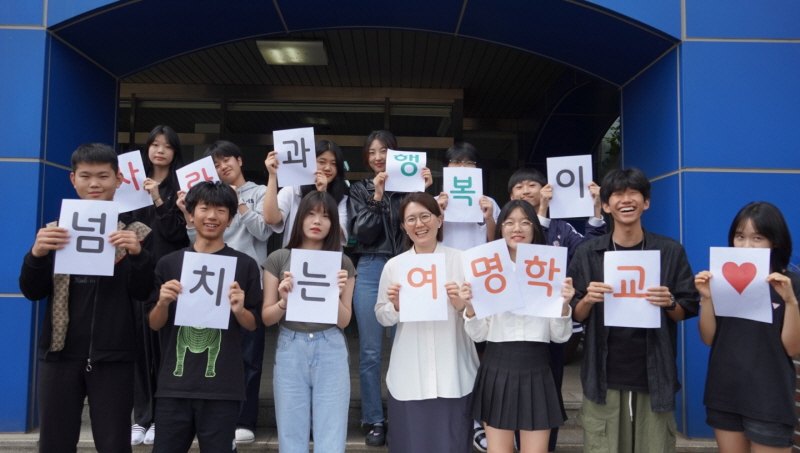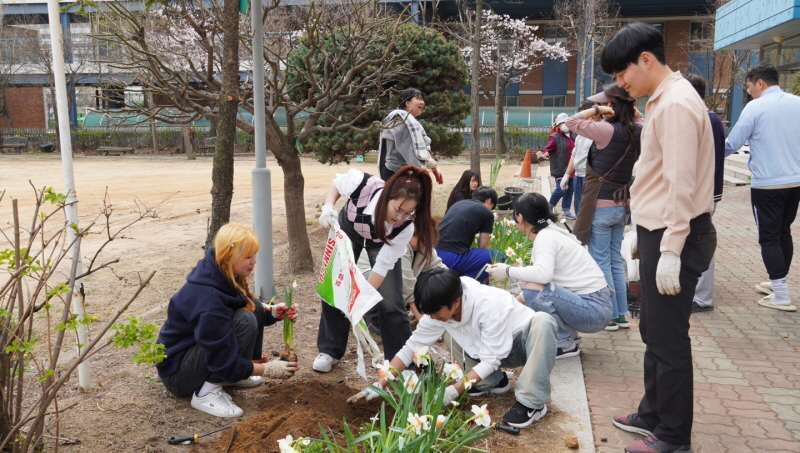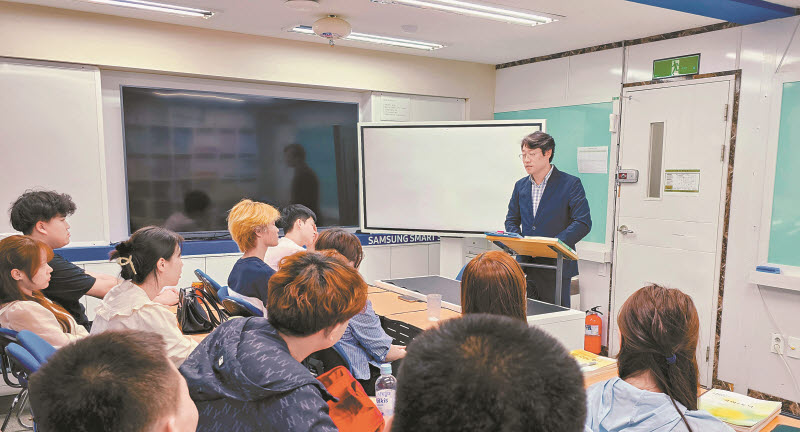[Last in a series]
“We must not turn our backs on children who have given up their Chinese nationality to become South Korea,” says Myung-sook Cho, the principal of Yeomyung School in Gangseo-gu, Seoul, an alternative school for North Korean defectors. “Many still label children born to North Korean defectors in China and other third countries as ‘Chinese kids’ or ‘children who will eventually return to China.’”
These children face significant challenges, including language barriers and lack of legal recognition as defectors, which excludes them from various support systems and makes it difficult for them to adapt to regular education. Yeomyung School provides an alternative tailored to their needs.
Principal Cho highlights the critical issue of South Korea’s declining population. “These children have voluntarily given up their nationality from countries like China to become South Koreans,” she said. “Although they are not legally recognized as defectors under current laws, they are practically part of our family. We need much more systematic support for their social integration, including Korean language education.”

Cho also pointed out the struggles North Korean women face while raising children in South Korea. “Many North Korean women feel immense guilt towards their children,” she said. “They often flee to South Korea first due to the fear of being apprehended in China, and it takes a long time to bring their children here. The unique situation of the Korean Peninsula forces these mothers into a position of guilt.”
Founded in 2004 and accredited in 2010 as an alternative school, Yeomyung School has educated hundreds of students, moving through various commercial buildings in Gwanak-gu and Jung-gu in Seoul. In 2019, the school’s plan to relocate to Eunpyeong-gu was thwarted by community opposition.
[Children of North Korean defectors born in third countries: ‘No place to call home’]
[China-born North Korean defectors battling discrimination in South Korean schools]
[Trapped between three nations: The identity dilemma of North Korean defector children]
The school is now temporarily housed in an abandoned school building in Gangseo-gu, which it must vacate by February 2026. “The children paint with hope for a new school, but there is no place willing to accept them,” Cho said.

At Wooridul School, another alternative school in Gwanak-gu, Principal Dong-joo Yoon emphasizes the urgent need for support for third-country-born North Korean children. “Many of these children face age, educational, and language barriers that prevent them from attending regular schools,” Yoon said. “They are forced to attend unaccredited schools, and we need desperate support for them. Unlike Yeomyung School, Wooridul School’s graduates do not receive recognized diplomas and must take equivalency exams, but we are still serving as a last resort for students who struggle with regular education.”
Yoon added, “Our school helps students who can’t enter regular schools to achieve a minimum educational level to adapt to society. Many defectors who left North Korea during the ‘Arduous March’ period did not receive proper education, and it’s essential to provide them with basic educational opportunities to contribute to society.”
Yoon stresses the need for financial support for students at unaccredited alternative schools. “Students can’t study if their livelihood is at risk,” he said. “We need to create pathways for these students to return to school rather than being pushed into undesirable jobs due to lack of basic education.”

Established in 2010, Wooridul School aims to equip students with the resilience to adapt to society. Despite financial challenges, students independently earn their transportation costs and diligently prepare for equivalency exams, combining their studies with social adaptation training.
However, the school’s future is uncertain. Financial difficulties in paying monthly rent, providing meals, and offering even minimal salaries to teachers threaten its existence. “We hope the government or private sector can at least support the classroom space, allowing third-country-born North Korean children attending unaccredited schools to continue their education in a stable environment,” Yoon urges.
Meanwhile, the South Korean government is planning to provide special college admissions support for these children, but there are urgent calls for immediate support in essential areas such as resettlement and housing.
The South Korean Ministry of Unification announced on June 27 a proposed amendment to the “Protection and Resettlement Support for North Korean Defectors Act.” This amendment aims to provide the same level of educational support to children born to North Korean defectors in third countries as those born in North Korea.
Currently, only children born in North Korea are eligible for various support benefits. There was no legal basis for supporting children born in third countries.
The proposed amendment aims to include children born in third countries during the defection process in special college admissions programs, financial support for university education, and financial aid for elementary, middle, and high schools.
If the law is amended, the process of recognizing the academic credentials of North Korean defector children born in third countries, which has been identified as one of their biggest challenges, could be simplified. Currently, only children aged between 6 and 18 can undergo academic evaluations comparable to multicultural students.
Those who enter South Korea after turning 18 cannot even undergo these evaluations and must rely on taking equivalency exams. Despite attending school in China, they are effectively considered uneducated upon arriving in South Korea.
A Ministry of Unification official stated, “Education is the most challenging aspect of the resettlement process for North Korean defectors. Given the significant number of children born in third countries, additional support is necessary for stable resettlement, which is the purpose of this legal amendment.”
However, the current amendment does not include provisions for resettlement support, such as housing or employment, or military service considerations for children born in third countries.
BY HYUNJU PARK, YEONGGYO CHUNG, YOOJUNG LEE, YOUNGNAM KIM [park.hyunju@joongang.co.kr]




